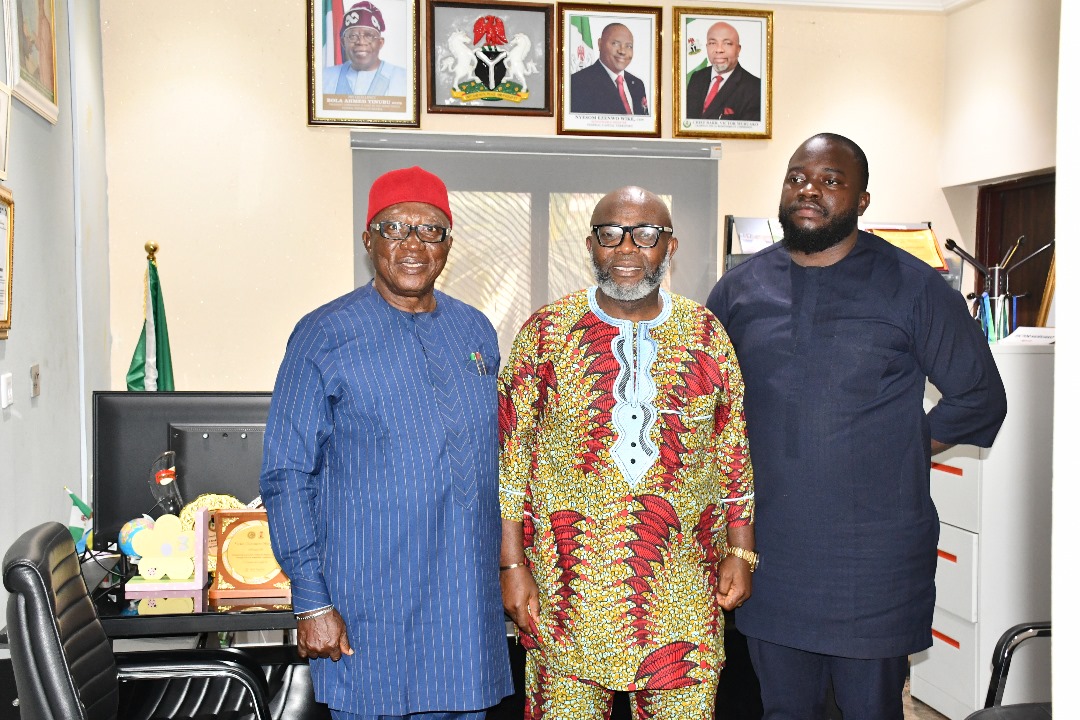Victor Muruako, Esq., Executive Chairman of the Fiscal Responsibility Commission (FRC), has called for intensified nationwide public advocacy on the Fiscal Responsibility Act (FRA) 2007.
He emphasized the Act’s critical importance in promoting transparency, accountability, fiscal discipline, and prudent management of public funds across Nigeria’s federal, state, and local governments.
Muruako made the appeal while receiving Retired Commodore Ogechi Osuagwu (Ochiagha) a respected member of the League of Professionals and former frontline State Executive Committee member of the Peoples Democratic Party (PDP) in Imo State during a courtesy visit at the Commission’s headquarters in Asokoro, Abuja.
Since its enactment, the Fiscal Responsibility Act has served as a foundational legal framework designed to eliminate reckless spending, reduce waste, and institutionalize responsible fiscal management by government entities.
The Act mandates that all public revenue and expenditure be conducted in a transparent manner, requiring regular reporting and accountability at all levels of government.
“The Fiscal Responsibility Act has become an indispensable tool in plugging the numerous leakages in public finances that have historically hindered Nigeria’s economic growth,” Muruako stated. “Every kobo allocated for public use must be prudently managed and transparently accounted for.”Before the FRA’s introduction in 2007, Nigeria’s public financial management was often characterized by ad hoc and discretionary spending with minimal checks, leading to inefficiencies, misappropriation, and corruption.
The Act has since helped establish ceilings on government borrowing, fiscal deficits, and expenditures, promoting macroeconomic stability.
Muruako further highlighted Section 51 of the Fiscal Responsibility Act, which empowers every Nigerian citizen regardless of status or special interest to demand transparency and accountability in public financial management. This provision gives the public the right to approach courts, initiate advocacy campaigns, and establish organizations dedicated to fiscal responsibility and good governance.
“You have the legal backing to hold government accountable, whether through litigation or civic engagement,” he stressed. “The law gives you that power to ensure public funds are managed responsibly.”
He underscored the need for wider public awareness, civic education, and active participation to strengthen the Act’s implementation.
According to Muruako, effective enforcement of the FRA requires collaboration among government agencies, civil society, media, and citizens to institutionalize fiscal discipline and curb financial improprieties across all tiers of government.
Retired Commodore Osuagwu commended Muruako’s visionary leadership and the Commission’s efforts to enforce fiscal discipline, describing the FRC as “a vital institution safeguarding Nigeria’s economic future.”
He acknowledged the positive transformation the FRA 2007 has brought to public financial management in Nigeria.
“We started from a place of serious fiscal mismanagement and corruption, but the Fiscal Responsibility Act has set us on a better path,” Osuagwu said. “It is not just about government resources; Nigerians must also embrace the discipline in their personal finances to build a sustainable economy.”
Osuagwu advocated for strengthening the Fiscal Responsibility Act by enhancing its enforcement mechanisms and imposing stiffer penalties for violations to deter fiscal indiscipline. He lauded Muruako as “a results-driven leader who delivers on every mandate” and pledged unwavering support for the Commission’s ongoing advocacy and reform initiatives.
The Fiscal Responsibility Commission, established under the FRA 2007, is mandated to monitor and enforce compliance with the Act. Its core functions include overseeing fiscal policies, ensuring prudent use of public funds, producing periodic reports on government fiscal activities, and advising the government on fiscal matters to promote economic stability.
Muruako urged Nigerians, particularly stakeholders in governance, civil society organizations, and the media, to leverage the FRA’s provisions to hold public officials accountable and foster a culture of transparency and fiscal responsibility that supports sustainable development.
Bede Ogueri AnyanwuHead/Deputy Director, Strategic Communications DirectorateFiscal Responsibility Commission0803 374 3104For more information or to follow the Commission’s activities,
visit:www.fiscalresponsibility.ngFollow us on Facebook: @Frc Abuja or Fiscal Responsibility CommissionEmail:info@frcnigeria.gov.ngWould you like me to add specific statistics, recent achievements of the FRC, or examples of enforcement actions for even more depth?
